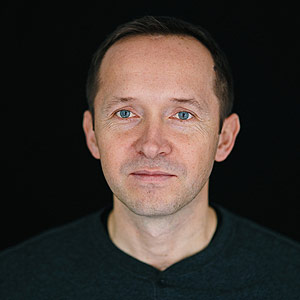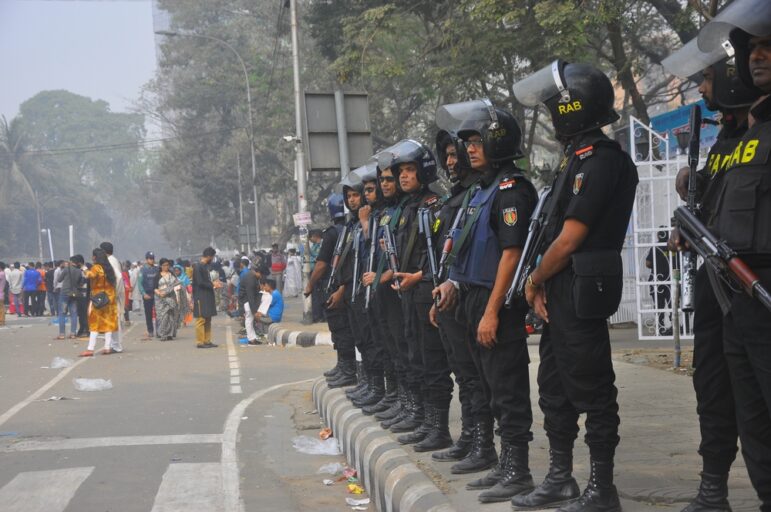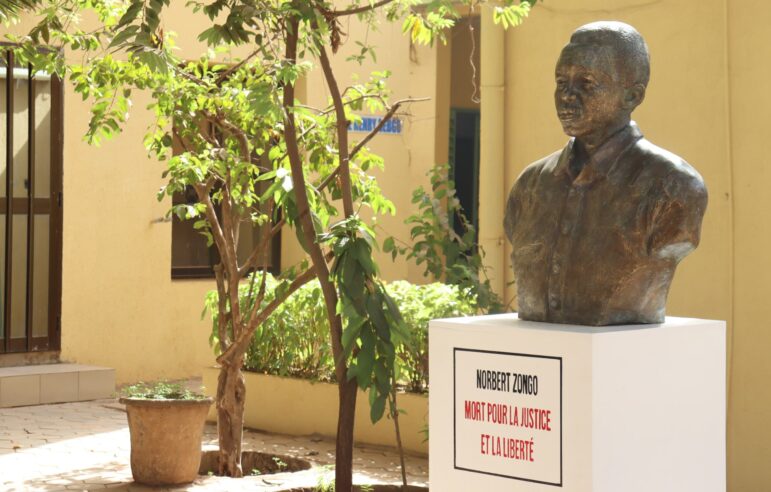

Image: Shutterstock
Lessons Learned from Witnessing Viktor Orban’s Crackdown on the Free Press
This is a strange time to be a Hungarian journalist.
Working in a small Central European country, we had not been used to getting international attention. In recent years, however, we have often been approached by journalists from developed democracies, including some working for prestigious US outlets, who asked for our advice. They wanted to know if we had any tips on how to handle the rising autocratic and anti-media tendencies in their own countries.

Under Viktor Orban, Hungary’s ranking on the World Press Freedom Index has plunged over the past decade. Image: Screenshot
They came to us after learning how Hungarian Prime Minister Viktor Orban, whom rightwing firebrand Steve Bannon once called “Trump before Trump,” has cracked down on the free press alongside other democratic institutions.
In a recent speech at a CPAC conference in Budapest, Orban openly spoke about how reshaping the media has been one of the keys to his power. “Have your own media,” he recommended to the audience full of American conservatives, adding that programs like Tucker Carlson’s Fox News show “should be broadcasted day and night.”
I have felt Orban’s crackdown on my own skin. Eight years ago, Origo, the popular news website I worked for at the time, came under intense political pressure because of exposés I wrote about a powerful government figure. My editor and I were told by representatives of the outlet’s owners, a telecommunications company that had close ties with the government, to slow down the reporting, and they even asked for the removal of certain stories from the site.
Not wanting to work under censorship, I left and set up Direkt36, an investigative reporting nonprofit, with two former colleagues.
Thanks to our dedicated membership community and the generosity of some international foundations, Direkt36 is now one of the very few outlets in Hungary that are not under the government’s influence and is also independent from other political or business interests. At the same time, we also became targets of regular attacks from the government and its allies. For example, pro-government propaganda outlets often claim, falsely, that we are foreign agents. Two of our reporters were even surveilled with the spyware known as Pegasus, a cyberweapon used by the Hungarian government.
Despite the firsthand experience, I don’t think I could give particularly useful tips to the journalists who reached out to me. I don’t know any magic weapons against autocratic crackdowns. What I can do is share common mistakes that we all can avoid so as not to make our own situation worse.
One of them is that when you come under attack from political forces as a journalist, it is tempting to make yourself the center of the story. I would recommend against doing that. While it is important to record the facts and explain to the public that media capture is a well-known strategy in dismantling democratic institutions, focusing too much on your role, however noble it is, will create a narrative that you personally fight against certain political forces. Nothing would make autocrats happier, as it would reinforce their argument that journalists are out to get them.
The other piece of advice concerns the attacks not against you, but against people and organizations representing democratic values that we had taken for granted (such as the rights of minorities, for example). When you see that, it may feel urgent to use the platforms you have and speak up against it in forceful ways. Again, I would recommend against doing that.
Being vocal will almost certainly make you more visible in the field (and will generate some social media followers) but what you gain in raising your profile can cost you in terms of credibility as a reporter. If you act like an advocate, you should not be surprised if you become viewed as such. Sure, you may become popular in certain corners, but others will be skeptical of your work, and this will limit your audience.
I’m not saying that nobody should speak up. On the contrary, I hope that lots of people — human rights defenders, advocacy groups, or simply just average social media users — will do it. But if you are in the news business, your greatest possible contribution to saving democracies is doing your job and doing it well. The need for profound and thorough news reporting is greater than it has been for a very long time. We are living in historic times as tectonic shifts are taking place in almost every sphere of society, and it is our utmost duty to record these events as accurately and deeply as possible.
There is another reason for focusing all our journalistic energies on reporting. Our information ecosystem is noisy, messy, and polluted with propaganda and misinformation. It is much harder to make an impact on the public discourse now than it was in the seemingly very distant past when news outlets and not technology companies controlled the flow of information. But ambitious reporting initiatives can have a powerful impact even in this environment. I saw this firsthand as the proud participant of some of recent years’ biggest international journalism collaborations such as the Panama Papers and the Pegasus Project. These stories dominated the global public discourse for weeks, prompted positive changes in several countries, and, even if just briefly, put autocratic governments such as Hungary’s on the defensive.
Those experiences taught me that there is still no better way to cut through the noise than by telling a great story. We should focus on doing that as if our survival depended on it. Because in some places it already does.
This article was originally published on Nieman Reports and is reprinted with permission. It is part of Nieman Reports’ ongoing series Reporting at Risk.
Additional Resources
Media Capture: Cementing Control through Financing and Ownership
Why Journalists in Autocracies Should Report as If They’re in a Democracy
Understanding the Authoritarian’s Playbook: Tips for Journalists
 Andras Petho is a co-founder and editor of GIJN member Direkt36, a groundbreaking investigative journalism center in Hungary. He served as a senior editor for the news site Origo, was a 2020 Nieman Fellow at Harvard University, and as a Humphrey fellow worked with The Washington Post’s investigative team.
Andras Petho is a co-founder and editor of GIJN member Direkt36, a groundbreaking investigative journalism center in Hungary. He served as a senior editor for the news site Origo, was a 2020 Nieman Fellow at Harvard University, and as a Humphrey fellow worked with The Washington Post’s investigative team.










